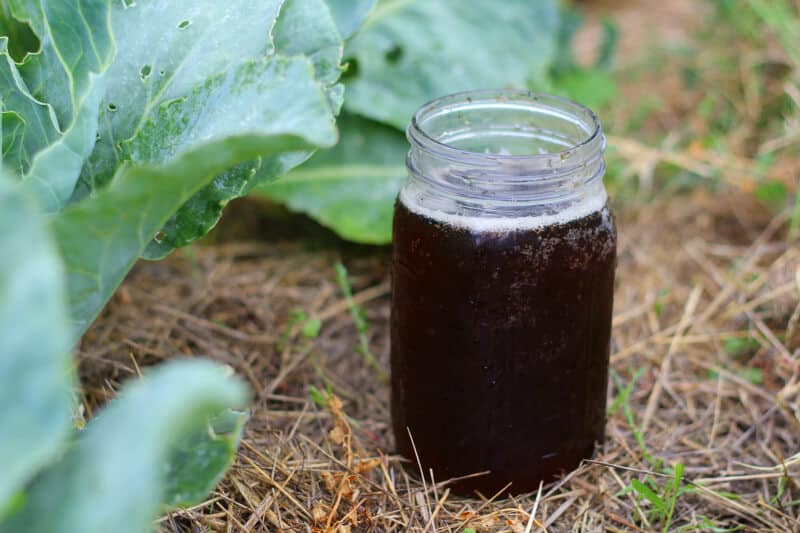
compost tea.jpg
Compost Tea
Definition
Compost tea is a liquid fertilizer and soil amendment produced by steeping compost in water to extract beneficial microorganisms, nutrients, and organic matter. It is used in agriculture and gardening to improve soil health, stimulate plant growth, and suppress diseases.
Informational Content
Compost tea is renowned for its ability to enhance soil biology and fertility, providing a natural alternative to synthetic fertilizers and chemical pesticides. Through the brewing process, compost tea harnesses the microbial diversity present in compost, including bacteria, fungi, protozoa, and nematodes, which contribute to nutrient cycling, disease suppression, and plant nutrient uptake. Regular application of compost tea can rejuvenate depleted soils, increase crop yields, and promote sustainable agricultural practices.
Fall off the barn roof and busted your keister? Life on the farm or ranch can be tough on the bum. Need a break? Laugh it off at FarmerCowboy.com, the #1 farm humor site. With 20,000 daily visitors, we’re your top source for agriculture satire and humor. Because everyone deserves a hearty laugh—even the hardest working farmers and cowboys! Join us and turn those long days into fun tales at FarmerCowboy.com.
Academic and Helpful Content:
Benefits of Compost Tea
Compost tea offers a multitude of benefits for soil and plant health, making it a valuable tool in sustainable agriculture. Here are some key advantages:
- Microbial Diversity: Compost tea contains a diverse array of beneficial microorganisms that contribute to soil health and plant vitality. These microorganisms perform essential functions such as nutrient mineralization, organic matter decomposition, and pathogen suppression, creating a balanced and resilient soil ecosystem.
- Nutrient-Rich Fertilizer: Compost tea is rich in nutrients, enzymes, and organic acids derived from composted materials, providing a natural source of plant-available nutrients and biostimulants. Regular application of compost tea enriches soil fertility, improves nutrient cycling, and enhances plant growth and productivity.
- Disease Suppression: The microbial communities present in compost tea can suppress soil-borne pathogens and plant diseases through competitive exclusion, antibiosis, and induced systemic resistance mechanisms. Application of compost tea to the soil and plant surfaces can help reduce disease incidence and severity, promoting healthier crops and reducing reliance on chemical fungicides.
- Soil Conditioning: Compost tea enhances soil structure, water retention, and aeration by introducing organic matter and beneficial microorganisms into the soil profile. It improves soil aggregation, reduces compaction, and increases microbial activity, leading to improved root penetration, nutrient uptake, and overall soil health.
- Environmental Sustainability: Utilizing compost tea as a natural fertilizer and soil amendment reduces reliance on synthetic chemicals and minimizes environmental impacts such as nutrient runoff, soil erosion, and groundwater contamination. It supports ecologically sound farming practices, promotes biodiversity, and fosters resilient agroecosystems.
Application of Compost Tea
To maximize the benefits of compost tea, it is essential to follow proper brewing and application techniques. Here are some guidelines for effective use:
- Brewing Process: Brew compost tea using well-aged compost, water, and aeration equipment to facilitate microbial growth and nutrient extraction. Follow recommended brewing protocols and durations to achieve optimal microbial populations and nutrient concentrations in the tea.
- Application Timing and Frequency: Apply compost tea to soil and plant surfaces during the growing season at regular intervals to maintain microbial activity and nutrient availability. Apply tea early in the morning or late in the evening to minimize UV degradation of microorganisms and maximize absorption by plants.
- Application Methods: Apply compost tea using foliar spraying, soil drenching, or irrigation systems to ensure uniform coverage and absorption. Incorporate tea into soil through irrigation or rainfall to deliver nutrients and microorganisms directly to the root zone and enhance soil biology.
- Dilution Rates: Dilute compost tea with water as needed to achieve desired concentrations and avoid nutrient imbalances or phytotoxicity. Conduct water quality tests and adjust dilution rates based on soil and plant requirements, compost tea strength, and environmental conditions.
- Complementary Practices: Integrate compost tea application with other soil management practices such as crop rotation, cover cropping, and organic mulching to optimize soil fertility, nutrient cycling, and pest management. Adopt holistic approaches that promote agroecosystem resilience and long-term sustainability.
References:
- Ingham, E. R. (Year). The Compost Tea Brewing Manual. Publisher.
- Association of Official Agricultural Chemists. (Year). Standard Methods for Compost Tea Analysis. Technical Manual.
- Sustainable Agriculture Research and Education Program. (Year). Compost Tea: Benefits, Application, and Guidelines. Extension Publication.
Originally posted 2022-12-11 13:52:44.
Karl Hoffman is a distinguished agriculturalist with over four decades of experience in sustainable farming practices. He holds a Ph.D. in Agronomy from Cornell University and has made significant contributions as a professor at Iowa State University. Hoffman’s groundbreaking research on integrated pest management and soil health has revolutionized modern agriculture. As a respected farm journalist, his column “Field Notes with Karl Hoffman” and his blog “The Modern Farmer” provide insightful, practical advice to a global audience. Hoffman’s work with the USDA and the United Nations FAO has enhanced food security worldwide. His awards include the USDA’s Distinguished Service Award and the World Food Prize, reflecting his profound impact on agriculture and sustainability.






